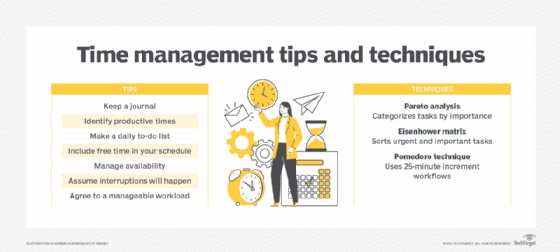
Unlocking Productivity: Effective Time Management Strategies
Time is a finite resource, and in the fast-paced world of business and personal commitments, mastering effective time management strategies is crucial for success. This article explores various strategies to optimize productivity, streamline workflows, and achieve a healthier work-life balance.
Understanding the Importance of Time Management
Effective time management is more than just a productivity hack; it’s a fundamental skill that empowers individuals to make the most of their time. Understanding the importance of time management is the first step toward creating a structured and efficient approach to daily tasks.
Setting Clear Goals and Priorities
Setting clear and achievable goals is a cornerstone of effective time management. By defining priorities, individuals can focus their efforts on tasks that align with overarching objectives. This not only enhances productivity but also provides a sense of direction and purpose in daily activities.
Prioritizing Tasks with the Eisenhower Matrix
The Eisenhower Matrix is a powerful tool for prioritizing tasks based on urgency and importance. Dividing tasks into four categories—urgent and important, important but not urgent, urgent but not important, and neither urgent nor important—allows individuals to allocate time efficiently and address high-priority tasks first.
Implementing the Pomodoro Technique for Focus
The Pomodoro Technique is a time management method that involves breaking work into intervals, traditionally 25 minutes in length, separated by short breaks. This technique helps maintain focus and prevent burnout, allowing individuals to approach tasks with renewed energy and concentration.
Utilizing Time Blocking for Efficiency
Time blocking involves dedicating specific blocks of time to particular tasks or types of activities. This method helps create a structured schedule and minimizes the impact of interruptions. By allocating focused time periods to specific responsibilities, individuals can enhance concentration and accomplish more in less time.
Leveraging Technology for Time Management
In the digital age, various tools and apps can aid in time management. Calendar apps, task management tools, and project management platforms help individuals organize their schedules, set reminders, and collaborate effectively. Leveraging technology optimizes efficiency and keeps individuals on track.
Learning to Delegate Effectively
Delegating tasks is a key aspect of time management. Understanding one’s strengths and the strengths of team members allows for effective delegation, ensuring that each task is assigned to the most suitable person. Delegating not only saves time but also fosters collaboration and skill development.
Regularly Reviewing and Adjusting Strategies
Time management is a dynamic process that requires continuous evaluation and adjustment. Regularly reviewing strategies allows individuals to identify what is working well and what needs improvement. This adaptive approach ensures that time management strategies remain effective in the face of changing priorities and challenges.
Navigating Time Management Solutions
For individuals seeking further insights and guidance on time management strategies, Time Management Strategies provides a comprehensive resource. This platform offers practical tips, expert advice, and tools to empower individuals in optimizing their time and achieving a harmonious balance between work and personal life. By incorporating these strategies into their daily routines, individuals can unlock their full potential and pave the way for sustained success.
